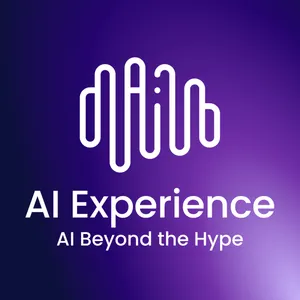Podcast Summary
EU regulations and Meta AI: EU regulations have caused delays in Meta's plans to release an AI assistant due to concerns over data protection and consent, illustrating the importance of regulations for user protection but also the potential drawbacks of slowing down technological implementation
The European Union's regulations are influencing the pace of technological innovation, specifically in the case of Meta AI. Meta's plans to release an AI assistant integrated into Instagram, WhatsApp, and Messenger in Europe have been delayed due to concerns over data protection and lack of clear consent from users. The European market requires a more cautious and regulated approach compared to the domestic market in the US. This highlights the importance of regulations for user protection but also the potential drawbacks of slowing down technological implementation. The case of Meta AI serves as a reminder of the complex relationship between technology and regulation.
Europe's AI infrastructure: Europe's AI development relies on expanding and evolving data centers due to increasing demand and environmental concerns, with tech giants investing $200 billion in 2024, but limitations in producing original and controversial content hinder AI's ability to fully replace human humor in news and stage.
Europe's growing reliance on artificial intelligence (AI) is leading to a significant increase in demand for data centers, but the current infrastructure is struggling to keep up due to high energy costs and environmental concerns. The demand for AI computing has surged in recent years, with Google reporting a million-fold increase since the launch of ChatGPT in 2022. Tech giants are investing heavily in new data centers, with plans to invest $200 billion in 2024. However, there is a pressing need for more data centers in Europe to support the development of AI and ensure digital sovereignty. A study by Google DeepMind showed that while AI can help create a basic structure for a comedy sketch, it struggles to produce genuinely funny and surprising jokes. The limitations of AI models in producing original and controversial content hinder their ability to replicate the humor of a news and stage. Overall, Europe's data center infrastructure needs to expand and evolve to meet the demands of AI and support the continent's digital future.
AI limitations in creativity: AI can't replace human creativity, originality, and understanding of cultural and emotional context, and its use for surveillance raises ethical concerns
While AI can be a useful tool, particularly in predicting behaviors and improving safety, it does not replace human creativity, originality, and understanding of cultural and emotional context. This was highlighted in an experiment discussing the limitations of AI in generating creative monologues. Furthermore, the use of AI for surveillance, such as the recent trials in British train stations, raises ethical concerns regarding privacy, transparency, and potential biases. These trials, which used cameras and emotion detection software, have sparked debates about the normalization of AI surveillance in public spaces and the potential erosion of individual freedoms. Despite claims of improved safety, experts and human rights advocates remain skeptical, emphasizing the importance of balancing technological innovation with respect for individual rights.
AI optimized traffic flow: AI technology analyzes traffic data and adjusts traffic light timings, reducing congestion by up to 30% and saving millions of trips per month, without requiring a complete overhaul of existing systems and decreasing waiting time at intersections to decrease global city pollution
Artificial intelligence is being used to optimize traffic flow through traffic lights, leading to smoother traffic and significant environmental benefits. This technology, such as Alphabet's Green Lights, analyzes data from cars and mapping applications to suggest adjustments to traffic light timings, reducing congestion by up to 30% and saving millions of trips per month. The implementation of these models does not require a complete overhaul of existing traffic systems and can be easily adjusted by municipal engineers. Additionally, the reduction of waiting time at intersections, which is significant considering vehicles are the main source of pollution in the US, contributes to a decrease in global city pollution. Tune in every Sunday for new episodes of AI Experiences, where we explore how AI is changing the world.
